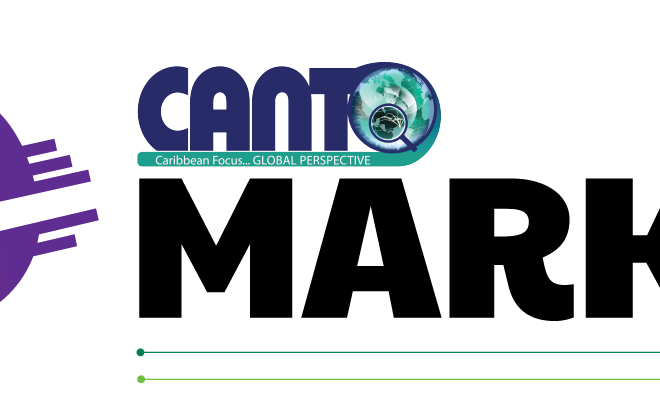CANTO WEEKLY NEWSLETTER – BNamericas
Thursday, September 6, 2018
Claro to continue investing in Dominican Republic – Regional
ICT: The week in 10 stories – Regional
Ansaldo to provide telecoms for future Panama metro line – Panama
Why smart lighting could be a game changer in Latin America – Regional
The information presented and opinions expressed herein are those of the author and do not necessarily represent the views of CANTO and/or its members
Claro to continue investing in Dominican Republic – Regional
Mexico’s telecoms giant América Móvil will keep investing in its Dominican Republic operations and infrastructure, its new country manager, Rogelio Viesca, was quoted as saying during a meeting with President Danilo Medina (pictured).
Viesca, who will take over the company’s local operations on September 16, did not give details on the new investments. “América Móvil has the commitment to keep investing in state of the art technologies and the upgrading of its infrastructure,” the executive said according to the Dominican Republic Office of the Presidency.
América Móvil’s Caribbean operations, which include the Dominican Republic and Puerto Rico, serve 5.7mn wireless subscribers and 2.6mn fixed-line revenue generating units or RGUs. The company reported a 44.8% Ebitda margin (a measure of profitability) in the country in the second quarter, a rise from 43.7% in the year-ago period.
The company’s revenue in the Dominican and Puerto Rican markets dropped 1.6% to US$472mn in Q2.
ICT: The week in 10 stories – Regional
MEXICO
–The first commercial offerings of telecoms services using the Red Compartida wholesale network in Mexico should be hitting the market as early as next month.
–The trade agreement between the US and Mexico will likely enhance digital trade as it includes stronger protections for telecoms investors, according to experts.
CHILE
–Chile is in the cybercrime spotlight again after details of 924 credit cards were leaked. Of the total, 210 were active, local banking watchdog Sbif said in a statement on Monday.
–CenturyLink’s new datacenter in Chile is almost finished. It will be the IP communications provider’s second in the country and the 19th in the region.
COLOMBIA
Colombia’s President Iván Duque has renewed calls for a convergent ICT regulator also said he would present a new ICT law to congress in September.
ARGENTINA
Argentina’s telecoms regulator Enacom is introducing measures that restrict the trade of illegal or stolen smartphones.
BRAZIL
Payment processing security solutions developer Berghem is eyeing opportunities in large consumer markets with high incidence of fraud in electronic payments, such as Brazil and Mexico.
URUGUAY
Argentine pay-TV and broadband company Cablevisión launched DTH satellite services in the Uruguayan departments of Montevideo, Canelones and San José, the company’s manager Gillermo Valente told La Red 21.
VENEZUELA
Nicolás Maduro, president of crisis-hit Venezuela, has announced that starting September, state benefits will be deposited in digital wallet accounts associated with the country’s national ID card.
REGIONAL
Smartphones sales in Latin America are expected to be less than originally forecast for 2018 as elections and economic uncertainty have caused consumer jitters.
Ansaldo to provide telecoms for future Panama metro line – Panama
Italian technology firm Ansaldo will provide telecommunication and signalling systems for the future line No.3 of the Panama City metro.
Operator Metro de Panamá signed an US$840mn agreement last week with Ansaldo and Japanese companies Hitachi and Mitsubishi to design, manufacture, supply, install, and operate the integrated operating system of the line’s monorail technology.
The agreement is based on a US$2.6bn financing deal for the construction of the line that Panama closed with Japan’s international cooperation agency JICA in 2016. The terms of the deal demand a subcontractor providing Japanese railway technology be selected.
The companies will assume the subcontractor rule once a contract for the construction of the line’s civil works has been awarded. The line will be around 34km, with construction carried out in two phases.
The line is set to have 14 stations and will run parallel to the Pan American highway, crossing the Panama Canal on the US$1bn fourth bridge that is about to be built.
Construction works are expected to last four to five years, depending on the progress of the construction of the bridge, which will be carried out simultaneously.
Tender documents for the contract to build the line are expected to be unveiled at the end of September. Seven companies have already pre-qualified to participate in the process.
PICTURED: President Juan Carlos Varela flanked by government officials and representatives of two Japanese and an Italian firm attend a ceremony for the signing of the agreement.
Why smart lighting could be a game changer in Latin America – Regional
IT-based lighting provider Signify, the new brand of Philips Lighting, sees smart lighting revolutionizing not only cities and energy but also telecommunications.
Formerly Philips Lighting, which became a standalone company following its spin-off from Royal Philips in 2016, Philips Lighting was rebranded as Signify this year.
Speaking to BNamericas on the sidelines of the America Digital conference in Santiago, Chile, Signify’s head of Open Innovation for EMEA, Mercedes Crego, said the company is looking to introduce new solutions that will bond with 5G technology when it appears in the coming years.
SMART POLES
The Smart Fusion Pole is a new innovation developed by Signify and American Tower combining energy-efficient LED lighting and wireless capabilities for mobile network operators.
The pole is optimized for small-cell deployment to address infrastructure needs of 5G and IoT. The first deployment was announced this year in Huntington Beach, California.
“With 5G there will be a need for a lot more boxes for antennas. In this case we economize on the level of infrastructure needed,” Mercedes Crego, Signify’s head of Open Innovation for EMEA, told BNamericas on the sidelines of the America Digital conference in Santiago, Chile, adding that trials are underway in the region.
LIGHTING THE WAY IN SUPERMARKETS
Signify has also developed a technology where connected LED lighting acts as GPS, transmitting location information to an app that shoppers can use to find products in a supermarket, for example.
The LED-based indoor positioning technology does not require additional hardware investments besides the light fixtures themselves, and offers 50% energy consumption savings.
Deployments already exist in French retail giant Carrefour in Lille with 800 linear LED fixtures.
LIFI
Signify is also now offering Light Fidelity (LiFi), a technology in which high quality LED lighting provides a broadband internet connection through light waves.
LiFi is a two-way, high-speed wireless technology similar to Wi-Fi but uses light waves instead of radio waves to transmit data. LiFi technology can provide broadband connections with a speed of 30Mbps without compromising lighting quality.
HUE
For the smart-connected home Signify has a line of Wi-Fi-enabled color changing LED lamps that allow different devices to be controlled, monitored and even repaired remotely.
“Lights can talk to each other and can be fixed remotely. Lighting is the most pervasive infrastructure that exists. So there is huge potential for IoT,” says Crego.
LAST MILE
Crego sees lighting technology as a useful complement to national broadband plans given that electricity is virtually everywhere and that infrastructure can be used to extend last mile communications.
In Chile, Signify made the first deployment in Latin America of managed public lighting in the town of Lago Ranco, where 350 white light LED lights were deployed, reducing power consumption by 40%. General Packet Radio Service (GPRS), was used allowing the lighting to be monitored remotely.
According to Crego, the use of white light improves the effectiveness of facial recognition and color perception for surveillance cameras in dimly lit conditions.
With operations in more than 70 countries and 32,000 people worldwide, Signify generated sales of 7bn euros (US$8.1bn) and invested 354mn euros in R&D in 2017.
Signify continues to use the Philips brand for its products under the existing licensing agreement with Royal Philips but expects the name change to be implemented in all the countries by the beginning of 2019.


